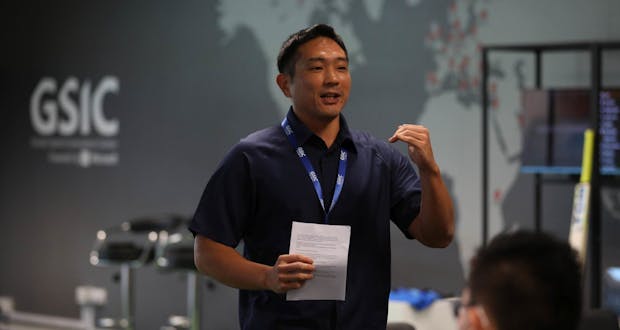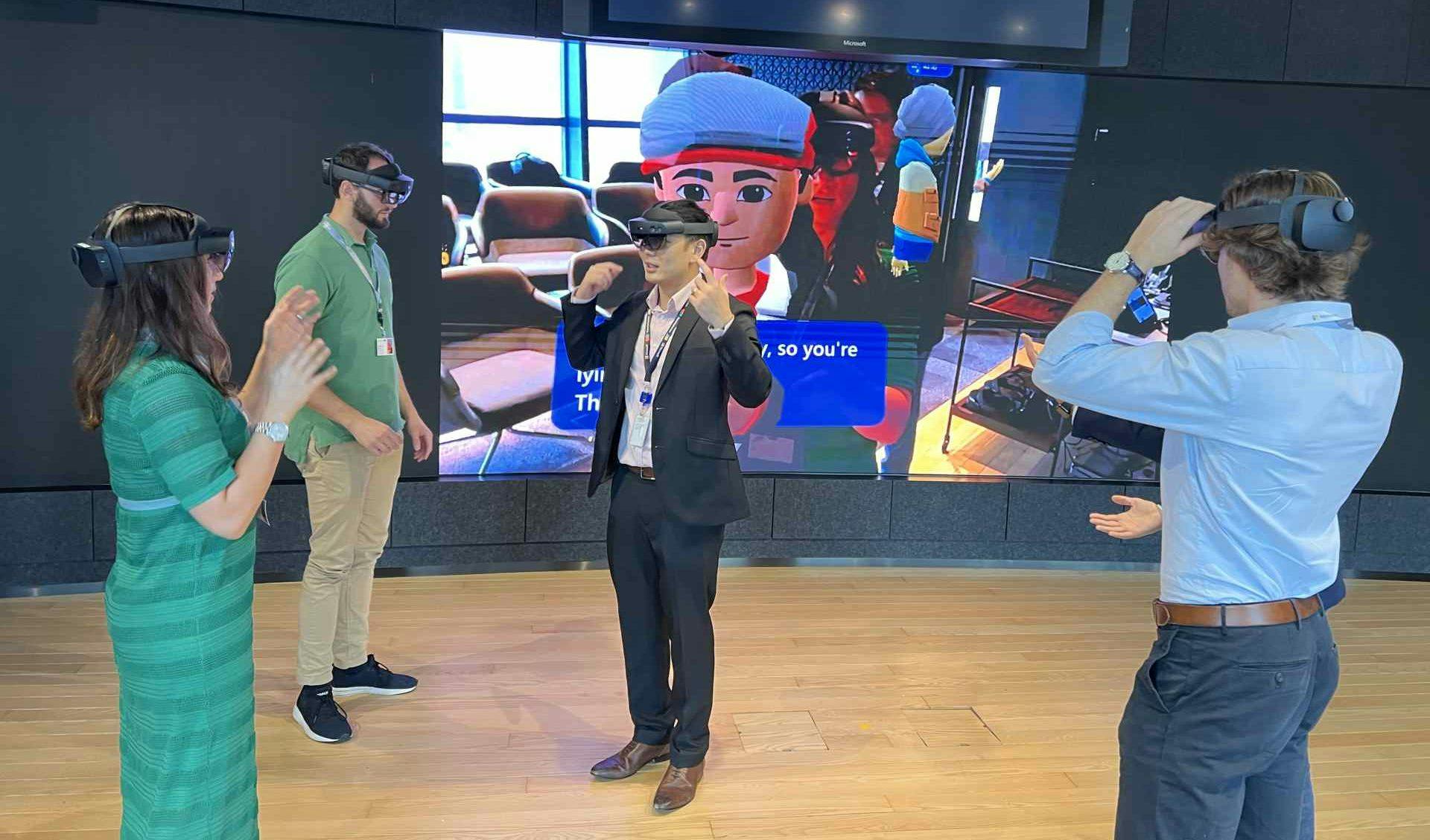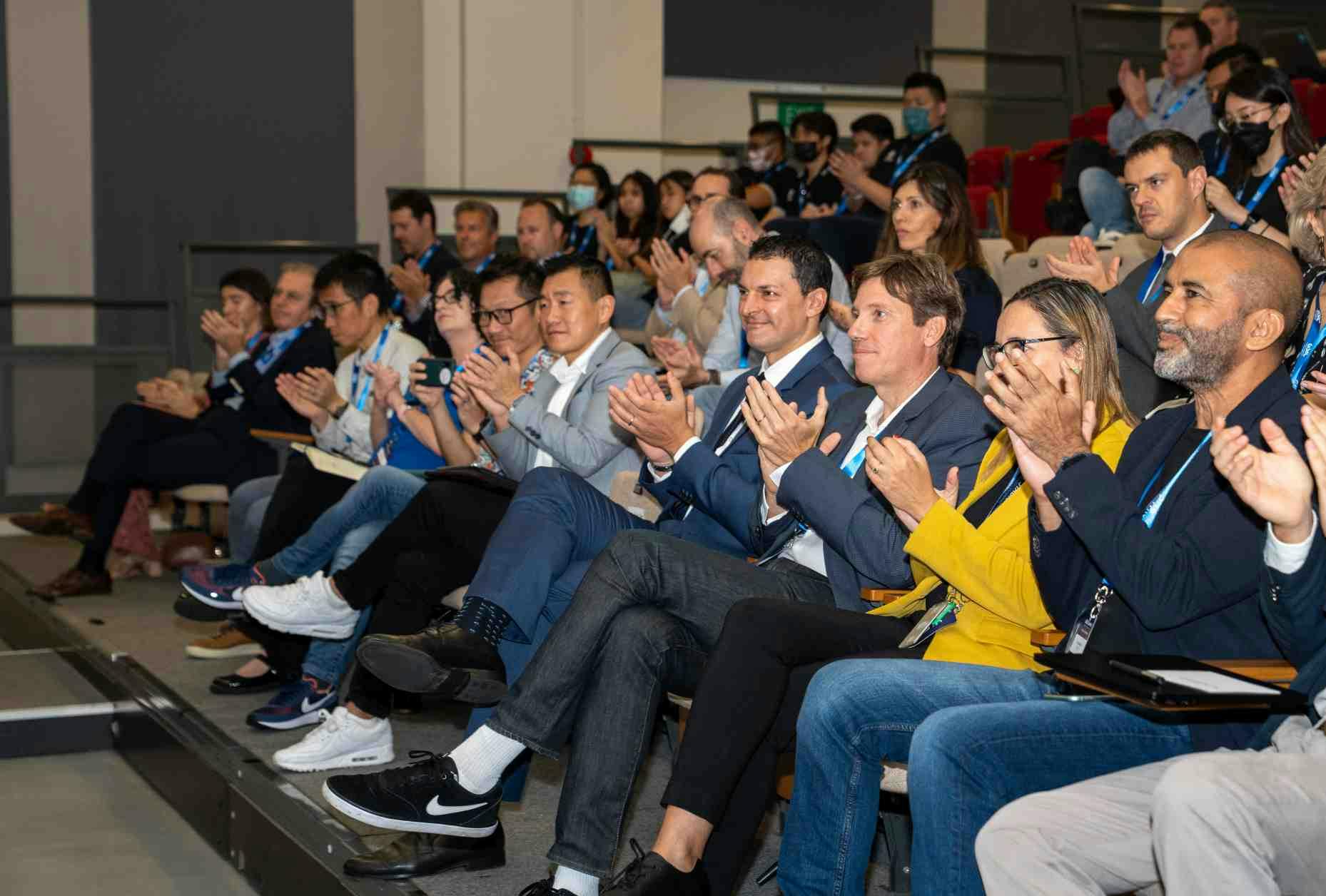
The Microsoft-backed Global Sports Innovation Centre (GSIC) celebrated the first birthday of its Asia-Pacific office in Singapore two weeks ago by gathering industry experts to discuss hot-button topics at its Apac Summit.
Prominent themes in the discussions included: using technology to enhance entertainment value within sport, the increasing demands on sport for sustainability, and the ongoing debate about Web3 opportunities.
Here are SportBusiness’s main takeaways from the day’s discussions.
The entertainment factor
Sport and other entertainment industries have edged closer over time, learning off each other and increasingly running joint initiatives. Microsoft uses the term ‘sportainment’ to label the development and sees it as an important concept for the future of sport.
Speaking at last week’s summit, Microsoft executive and GSIC president Sebastián Lancestremère said sports industry players should be: “Thinking like Netflix, thinking like Red Bull Media House, thinking like digital native companies that are creating content and services.”
Stephen Duckitt, event strategy director at World Table Tennis, an organisation that has spent the last couple of years reimagining the global table tennis tour, endorsed the concept. He said WTT has been focused on: “What we can do to bring fans closer to the athletes, to be able to capture that Instagram moment and experience something more than what happened on the table.”
Some of WTT’s innovations have been simple. Event schedules have been changed so play is continuous rather than requiring spectators to wait 20 minutes between matches. Other innovations are more high-tech. WTT is currently looking at: building computer chips into racquets to track and visualise movement; LED table-tops and flooring to create new visuals; and creating Japanese anime-style representations of players and matches that fans can watch using virtual reality headsets.

Sustainability rises up the agenda
Environmental sustainability was the focus of one panel but also cropped up in several other discussions. It is clearly a topic that is now front-of-mind for event organisers, suppliers and hosts such as Singapore.
Sustainability is a difficult concept to square with sports industry growth, particularly big international events that thrive on big spectacles, large attendances and travel. Microsoft’s Lancestremère said 75 per cent of sport’s emissions are generated by major events.
Roy Teo, head of industry development, technology and innovation at Singapore’s national sports agency SportSG, said: “Starting from next year, we expect all our event organisers, especially those that take grants from us, to organise events [that are] sustainable.”
He gave examples of steps taken this year at events in the city. Athletes at the Fiba 3×3 Asia Cup were given free public transport cards rather than cars to ferry them around. Utensils in catering areas were made from sustainable materials rather than disposable plastics.
The International Table Tennis Federation this year signed the United Nations’ Sports for Climate Action Framework. “Now everything that we do needs to have a sustainability bent to it,” WTT’s Duckitt said. One of the steps table tennis has been taking is using IT systems “to remove as much paper as possible from officiating and from the way we deliver information”.
GSIC backer Microsoft is aiming to be ‘carbon negative’ by 2030, and by 2050 to have removed from the environment more carbon that it added to it since the company’s inception in 1975. It has employed an internal ‘carbon tax’ to encourage business units to reduce their carbon footprint. “We’ve been procuring literally billions of dollars in renewable energy over the past past few years,” Lancestremère told the summit.

Web3 conundrum
Most sports organisations are trying to figure out the opportunities within Web3, NFTs, the crypto space and the metaverse. This exploration continued at the GSIC Apac Summit.
Spanish football’s LaLiga has dived headfirst into all things tech in recent years, exemplified by the creation of its LaLiga Tech unit last year. Ivan Codina, LaLiga’s managing director in Southeast Asia, said blockchain technologies are “already a big revenue stream” for the league. LaLiga has in the last couple of years agreed partnerships in the space with operators including Dapper Labs, Sorare, and GreenPark Sports.
Codina expects opportunities in the sector to only grow. “We believe that…especially with the arrival of metaverse, there are unlimited opportunities,” he said.
But this year’s ‘crypto winter’ has prompted rethinks around digital assets and the future remains unclear. In particular, there is a struggle to find use cases for NFTs beyond speculation on their future value.
Joseph Khan, chief operating officer at Singapore-based gaming company and Web3 specialist Enjinstarter, related the tale of a successful NFT-based membership scheme it created for an alcohol brand. The brand had had little success with a previous membership scheme that was not linked to NFTs. When Enjinstarter asked members why they were drawn in by the NFT element, they gave three answers:
“One is the novelty of the NFT. The other thing…it feels like something that I have some kind of ownership [over]. The other thing is…they said, ‘I can actually own the NFT, which could be worth something, and then later on I can sell it off’.”
It is clear the third rationale – speculation on future value – has driven most of the activity in the NFT space over the past couple of years, in a bubble that has now popped. A big question for the future is whether Web3 companies and sports organisations can use NFTs to deliver other kinds of value to fans.

Sports tech pollinates Singapore’s wider tech ecosystem
Opening the GSIC Summit, Singapore’s Minister of State for Trade and Industry Alvin Tan said the city is “a marketplace for ideas and innovation, and a sandbox to test your ideas to allow for you to then build, grow and then to scale your operations regionally”.
He said start-ups in other fields, such as agri- and food-tech, tell him they value being in the city alongside businesses from other, unrelated sectors such as sport. The businesses feel they learn valuable lessons from each other.
Singapore is pushing all its business sectors, including sport, to innovate and employ new technology.
Tan observed three important themes for the sports industry as it emerges from the pandemic: “One is how do you have safe sport [in terms of controlling the pandemic risk]? How do you have sustainability within sports? And third, the use of technology and innovation.”
He also pledged that Singapore would continue hosting “regional and international sporting events with world class spectatorship and viewership experiences”.
A week after the summit, Singapore was unveiled as the host of the International Olympic Committee’s first Olympic Esports Week, marrying the city’s twin goals of sports industry and technology sector development.

Bullish on sport
GSIC backer Microsoft is confident about the sports industry’s near-term growth prospects.
GSIC president Lancestremère predicted growth “twice as fast as global GDP” for sport in the coming years. He put the current value of the global industry at $160bn, rising to $1.5tn counting adjacent industries including “betting, apparel, equipment, health, fitness, education and tourism”.
Microsoft is positioning itself to play a valuable role in this growth story. Lancestremère said: “We see that we can capture together, collectively, more opportunities and mature this industry by reimagining sports as digital and sustainable business.”